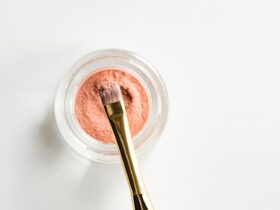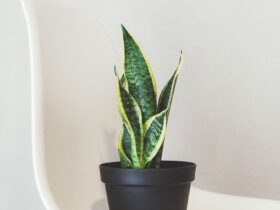A perfume atomizer is more than just a container; it’s a vital part of the fragrance experience. It allows you to dispense perfume in a fine mist, ensuring even coverage and preventing wastage. However, like any precision instrument, perfume atomizers require proper care to maintain their functionality and longevity. Neglecting them can lead to clogged nozzles, altered scents, and ultimately, a frustrating user experience. This guide outlines the dos and don’ts of perfume atomizer care, helping you keep your fragrances smelling their best and your atomizers working flawlessly.
Understanding Your Perfume Atomizer
Before diving into the specifics of care, it’s helpful to understand the basic mechanics of a perfume atomizer. Most atomizers operate using a simple principle: a pump mechanism creates a vacuum, drawing perfume up a thin tube and then forcing it through a small nozzle. This nozzle breaks the liquid into fine droplets, creating the spray. Because of this mechanism, residue and buildup within these components are common issues.
Atomizers come in various shapes and sizes, from the basic plastic spray heads on inexpensive perfumes to the more sophisticated metal atomizers found on high-end bottles. The materials used can also vary, affecting their susceptibility to damage and the best cleaning methods. For example, some metal atomizers may be prone to corrosion if exposed to certain chemicals.
The Dos of Perfume Atomizer Care
- Do Store Perfume Properly: Keep your perfume bottles in a cool, dark place away from direct sunlight and extreme temperature fluctuations. Sunlight and heat can degrade the perfume itself, as well as potentially damaging the atomizer mechanism. A drawer or cupboard is ideal.
- Do Prime New Atomizers: If you’re using a new atomizer for the first time, prime it by spraying a few times to ensure the pump is working correctly and that the perfume is flowing through the system.
- Do Clean Regularly (If Necessary): If you notice a decrease in spray quality, or if the atomizer seems clogged, cleaning can often resolve the issue. Use a small amount of isopropyl alcohol (rubbing alcohol) in the atomizer to dissolve any residue. More detail on cleaning methods below.
- Do Use Distilled Water: When cleaning, using distilled water is crucial. Tap water can contain minerals that can leave deposits and contribute to clogging.
- Do Store Atomizers Upright: Storing perfume bottles upright helps prevent the perfume from continuously sitting in the tube and nozzle, which can contribute to buildup and clogging.
- Do Use a Funnel When Refilling: If you’re refilling a travel atomizer from a larger bottle, use a small funnel. This prevents spills and keeps the atomizer cleaner.
The Don’ts of Perfume Atomizer Care
- Don’t Leave Perfume in Hot or Humid Environments: Avoid storing perfume in bathrooms or other areas with high humidity. Humidity can degrade the perfume and potentially damage the atomizer.
- Don’t Force a Clogged Atomizer: If the atomizer is clogged, don’t repeatedly force the pump. This can damage the mechanism and potentially cause it to break.
- Don’t Use Harsh Chemicals for Cleaning: Avoid using harsh chemicals, such as bleach or strong detergents, to clean your atomizer. These can damage the materials and potentially alter the scent of your perfume.
- Don’t Overfill Atomizers: When refilling atomizers, don’t overfill them. This can put pressure on the pump mechanism and potentially cause leaks. Leave some headspace.
- Don’t Expose Atomizers to Extreme Temperatures: Extreme cold or heat can damage the atomizer mechanism and potentially alter the perfume’s composition.
- Don’t Ignore Changes in Scent or Spray Quality: If you notice a change in the scent of your perfume or a decrease in the spray quality, address the issue promptly. This could indicate a buildup of residue or a problem with the atomizer.
Cleaning a Clogged Perfume Atomizer: A Step-by-Step Guide
A clogged atomizer can be frustrating, but often it can be resolved with a simple cleaning. Here’s a detailed step-by-step guide:
- Empty the Atomizer: If there is perfume remaining in the atomizer, empty it into a clean, airtight container. Label the container clearly with the name of the perfume.
- Rinse with Distilled Water: Fill the atomizer with distilled water and spray several times to flush out any remaining perfume residue. Repeat this process a few times until the water runs clear.
- Clean with Isopropyl Alcohol: Fill the atomizer with isopropyl alcohol (70% or higher concentration). Spray several times, then let the alcohol sit in the atomizer for 15-30 minutes to dissolve any stubborn residue.
- Rinse Thoroughly: After soaking with alcohol, rinse the atomizer thoroughly with distilled water until all traces of alcohol are gone. The smell of alcohol should completely dissipate.
- Air Dry Completely: Allow the atomizer to air dry completely before refilling it with perfume. This is crucial to prevent mold growth and ensure that the perfume’s scent is not altered. You can leave it upside down on a clean paper towel.
- Test and Refill: Once the atomizer is completely dry, test it with a small amount of perfume before refilling it completely. This will ensure that the cleaning process has resolved the clog and that the atomizer is working properly.
Choosing the Right Atomizer for Your Needs
When selecting an atomizer, consider the type of perfume you will be using and your intended use. For travel, smaller, leak-proof atomizers are ideal. For everyday use, you may prefer a larger atomizer with a more robust spray mechanism. Consider the materials used; glass atomizers are generally more inert and less likely to react with the perfume than plastic ones. Metal atomizers can be stylish, but ensure they are made of a material that is resistant to corrosion.
Preventative Measures
Beyond cleaning, preventative measures are key to maintaining the health of your perfume atomizers. Regularly wiping down the exterior of the atomizer with a soft cloth can prevent the buildup of dust and grime. Avoid touching the nozzle with your fingers, as this can transfer oils and other contaminants that can contribute to clogging. When traveling, consider using a protective case to prevent damage to the atomizer.
Conclusion
Taking proper care of your perfume atomizers is essential for preserving the quality of your fragrances and ensuring a consistent and enjoyable user experience. By following the dos and don’ts outlined in this guide, you can prevent clogging, maintain the integrity of your perfumes, and extend the lifespan of your atomizers. A little bit of attention and preventative maintenance can go a long way in keeping your fragrances smelling their best and your atomizers working flawlessly for years to come.
Frequently Asked Questions (FAQs)
How often should I clean my perfume atomizer?
It depends on how frequently you use it and the type of perfume you are using. If you notice a decrease in spray quality or suspect a clog, it’s time to clean it. Otherwise, a cleaning every few months is a good practice.
Can I use vinegar to clean my perfume atomizer?
While vinegar can be effective for cleaning, it’s not recommended for perfume atomizers. The acidic nature of vinegar can potentially damage certain materials and may leave a lingering odor that could affect the scent of your perfume. Isopropyl alcohol is a safer and more effective alternative.
My atomizer is leaking. What should I do?
If your atomizer is leaking, it could be due to a loose connection or a damaged seal. Check to ensure that all parts are securely tightened. If the leaking persists, the atomizer may need to be replaced.
Can I use the same atomizer for different perfumes?
It’s generally not recommended to use the same atomizer for different perfumes, as the scents can mix and alter the original fragrances. If you must use the same atomizer, clean it thoroughly between uses, as described above.
What type of isopropyl alcohol should I use for cleaning?
Use isopropyl alcohol with a concentration of 70% or higher. This concentration is effective for disinfecting and dissolving residue without being too harsh.
















Leave a Reply